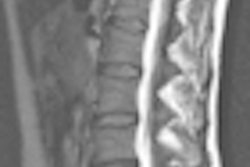
NEW YORK (Reuters Health) - Radiation plus gemcitabine may be as good as cystectomy for muscle-invasive bladder cancer, a phase II study suggests.
After radiotherapy and four cycles of gemcitabine, three-year cancer-specific survival was 82% and overall survival was 75%, the study investigators reported online January 4 in the Journal of Clinical Oncology.
"These results with gemcitabine and radiotherapy are as good as the best reported results of cystectomy, although ours is only a small group of selected patients," said Dr. Richard Cowan, a consultant in Clinical Oncology at Christie Hospital in Manchester, England, and the study's senior author. "As we improve our results with these approaches, we should recognize that a growing number of patients with muscle invasive bladder cancer can have the same chance of cure with chemoradiation as with cystectomy."
Although the use of gemcitabine is novel, the combination of radiation and chemotherapy for bladder cancer is not new, said Dr. Daniel Canter, a surgeon at Fox Chase Cancer Center in Philadelphia. But studies like this one, Dr. Canter said, reopen the debate on whether cystectomy is the only option for bladder cancer patients, many of whom are poor surgical candidates because of age and comorbidities.
"There is still a bias that surgery is the best way to go for bladder cancer, which may or may not be true," Dr. Canter said. "I don't think the essence of what they are doing is that much different than what's already been done. What is important is that it's renewing, or hopefully will renew, the debate about the best way to treat some of these patients."
Previous radiochemotherapy regimens have used cisplatinum, which is nephrotoxic and often requires hospital admission. Gemcitabine, however, is radiosensitized, and the dose used in this study was one-tenth the usual amount used for either neoadjuvant or metastatic treatment of muscle-invasive bladder cancer.
The study involved 50 patients, all with stage T2-3, N0, M0 transitional cell carcinoma. All 50 completed the course of hypofractionated radiotherapy, receiving a total of 52.5 Gy in 20 fractions within 28 days.
Forty-six patients also completed the full four courses of gemcitabine, which consisted of 100 mg/m2 IV once a week, a few hours before the radiation treatments. Two patients stopped after two infusions and two more after three infusions, all due to grade 3 bowel toxicity.
After a median time of three months, 88% of patients achieved a complete response confirmed by endoscopy. During this first check, three patients had nonmuscle invasive bladder cancer (two underwent transurethral resection while the third patient required cystectomy).
Four patients required a salvage cystectomy, three for recurrent disease and one because of bowel toxicity.
Seven patients died of metastatic disease; five of these patients had pelvic nodal recurrences. Another five died of intercurrent disease, and two died from treatment-associated effects.
At two years, 89% of all survivors had an intact bladder without any change in sexual, bladder, or bowel function. Three-year overall survival was 75% and three-year disease-specific survival was 82%. Five-year overall and disease-specific survivals were 65% and 78%, respectively.
The investigators suggest a variety of follow-up phase III trials, including the combination of their "GemX" protocol with neoadjuvant therapy. But it is unlikely that conservative chemotherapeutic regimens will ever be directly compared to the current gold standard cystectomy, said Dr. Orazio Caffo, a medical oncologist in at Santa Chiara Hospital in Trento, Italy, who has studied gemcitabine in a number of combinations.
"In bladder cancer, as in other tumor types, such as head and neck cancers, it is impossible to conduct a phase III trial comparing nonconservative and conservative approaches" because patients rarely want surgery when medical therapy is available, Dr. Caffo said in an e-mail to Reuters Health.
He continued, "The gemcitabine use has improved, in my opinion, the ability of radiochemotherapy to control localized infiltrating bladder cancer. But without the possibility to match the different drug and radiotherapy doses into a formal phase III trial due to recruitment difficulties it is very difficult to confirm the promising results achieved from the published small phase I and II studies."
By Gabriel Miller
Source: http://bit.ly/hwqzWX
J Clin Oncol 2011.
Last Updated: 2011-01-12 19:10:15 -0400 (Reuters Health)
Related Reading
FDG-PET/CT aids evaluation of bladder cancer patients, November 16, 2010
Chemo + radiation may save cancerous bladders, November 4, 2010
Copyright © 2011 Reuters Limited. All rights reserved. Republication or redistribution of Reuters content, including by framing or similar means, is expressly prohibited without the prior written consent of Reuters. Reuters shall not be liable for any errors or delays in the content, or for any actions taken in reliance thereon. Reuters and the Reuters sphere logo are registered trademarks and trademarks of the Reuters group of companies around the world.

















